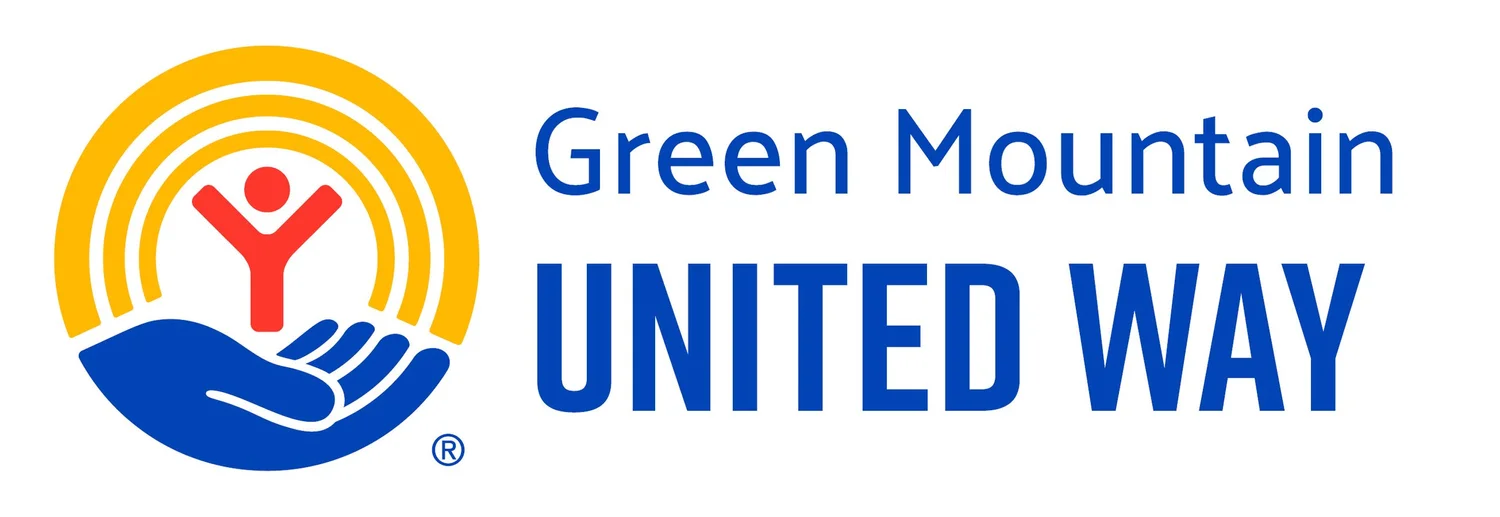K.E.E.P. Financial Coaching
Financial coaching is an emerging practice that helps clients learn to set and achieve their financial goals through learned behavior changes built on the trusted relationship between coach and client.
Knowledge,
Equity,
Empowerment, and
Partnership
These four elements lead to financial stability, financial success, and financial freedom.
This train-the-trainer style financial coaching program comprises three elements that work together to create the most benefit for participants and their clients.
Education: Coaches are trained in both financial literacy skills and coaching skills through the Intro to Financial Coaching. Upon completion, students are certified as Financial Coaches by Green Mountain United Way. After the initial training is complete, coaches are invited to attend any or all of the additional training we offer on specific topics like budgeting, credit building strategies for clients, and more, taught by local and regional experts.
One-on-one support: Green Mountain United Way’s team of K.E.E.P. Financial Coaches are available to work with each trained Financial Coach to help them integrate the practice into their work and their organization’s work. This is a key way coaches continue to develop their skills.
Peer-to-peer support: The Master Coach facilitates peer meetings for all coaches to offer support, networking opportunities, and program innovations based on coaches’ on-the-ground experiences working with clients.
Who can or should become a Financial Coach?
Financial Coaches are the individuals working directly with clients on issues impacting that client’s life, and whose work with that individual includes a relationship where coaching them toward life goals would make a difference for the client’s outcomes. Coaches can work for nonprofit or for-profit organizations and need to work in a way that enables them to have direct access to clients to be able to discuss personal information, set goals, and follow-up with clients. Coaches also need to be able to record data on a client’s credit score, savings levels, and assets in order to measure a client’s financial progress.
Examples of roles that would benefit from being a Financial Coach are: Social workers at a Youth Service Bureau, staff at an Agency on Aging who work directly with elders on health, wellness, housing or other issues, patient navigators, financial institution (credit unions or banks) staff working with individuals toward the goal of homeownership, and high school teachers or school support staff.
Who benefits from this program?
The primary beneficiaries are the clients whose lives are impacted or complicated by financial issues and who receive financial coaching to help change those outcomes. The secondary benefits go to individuals trained as coaches. This information will help these staff members become more financially stable and be more able to navigate financial issues in their own lives, while also increasing their skill set and tools they have to help their clients succeed. Your organization will benefit from the improved knowledge and practice of both staff and clients and will have access to program data (improvements in credit scores, savings rates, etc.) to use toward your own tracking.
What is the commitment?
We ask that all Financial Coaches attend all four classes, participate in the discussion, and make an effort to attend quarterly peer-to-peer meetings. While we understand that four half-days of training is a challenge for many direct service staff, we believe that the benefits of having a fully-trained Financial Coach (or two) on your organization’s ability to deliver services will outweigh the scheduling challenge.
What does it cost?
There is a fee to participate in classes, which helps us cover our costs and ensures high-quality instruction. Currently, that fee is $200 for the four-day training (plus ticketing fees). There is no charge for program participants beyond the training fees, though there are fees for attending additional trainings.
How do I become a Financial Coach?
This training is offered in the Spring and Fall each year, typically in April and May for the Spring and October and November for the Fall. Trainings are online and are typically held across four consecutive Mondays from 9:00am to 12:00pm. Check here for specific dates and times when registration opens.
If you have more questions about whether the K.E.E.P. Financial Coaching is the right thing for you and your organization, contact Rebecca Baruzzi, Community Impact Director, at rbaruzzi@gmunitedway.org.
2025 FALL SESSION IS OPEN FOR REGISTRATION
Participants must register for Green Mountain United Way's K.E.E.P. Financial Coaching course. There is a $200 fee (plus ticketing fees) to participate in this training. This is a four-day course that will take place over a four-week period.
Sessions are held:
Monday October 20 and 27 & November 3 and 10
9:00am to 12:00pm | Online

